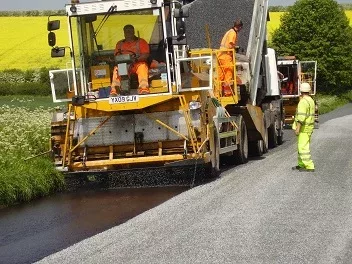The highways sector is meeting the on-going challenge of roads ‘melting’ under extreme heat, according to Paul Boss, Chief Executive of the Road Surface Treatments Association (RSTA).
Mr Boss was speaking to the Sunday Times’ Driving.co.uk publication after it ran a story about melting roads across the country this week. It reported that soaring temperatures across the UK are causing some older roads to melt, leading to the need for emergency repairs to be carried out.
It said that Gloucestershire County Council has been carrying out emergency works in Tewkesbury as parts of the A38 began melting. Workers spread a fine layer of grit to help soak up the melted material and create a more solid surface after the road softened in the baking sun, as had roads in Somerset as well.
Some parts of the country are seeing temperature soar above 30C this week, which is likely to result in more road surfaces becoming affected and, in turn, could lead to more damage occurring later on in the year.
Paul Boss, Chief Executive of the Road Surface Treatment Association (RSTA), said: ”Many roads made from asphalt do not melt in extreme heat because they are protected by a material called bitumen, which does not melt until it reaches a very high temperature.
“Some older roads can suffer from vehicle wheel track damage as a result of heavy goods vehicles, but now modern asphalts are produced and laid in such a way that this does not happen on roads resurfaced over the last 25 years to 30 years, so drivers do not need to be concerned.
“Further treatments applied to the road surface regularly throughout its life help stop cracks and water getting into the road, preventing potholes forming.”





















